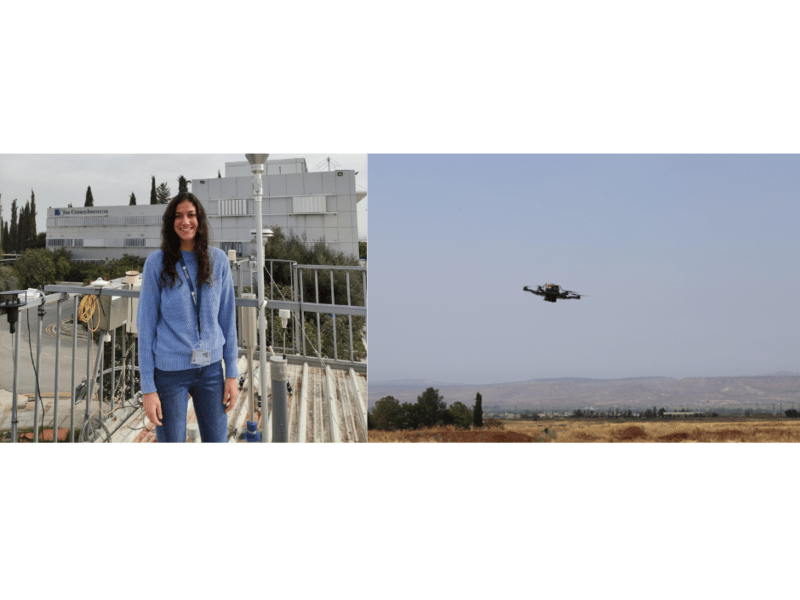
PhD students on Edu4Climate project – Roubina Papaconstantinou
Student name: Roubina Papaconstantinou
Short bio: Roubina Papaconstantinou started pursuing her PhD in Energy, Environment and Atmospheric Sciences in October 2020. She joined CARE-C of the Cyprus Institute in December 2019 as a Research Assistant in Aerosol Science and Technology. She holds a Bachelor degree in Mechanical Engineering from the University of Cyprus (2018) and an MSc in Engineering Materials from the University of Southampton (2019).
PhD year of study: 4th year
PhD supervision: Prof George Biskos
PhD institution: The Cyprus Institute
Thesis title and description: “Performance Evaluation and Development of Cost-Effective Sensor Platforms for Air Quality Monitoring, Localization and Quantification of Emissions”
This research aims to assess the capability of a UAV-based system to detect and geo-localize accurately CH₄ sources. Thanks to further fusion/processing of the multi-sensor data with a Gaussian dispersion model, the solution is not only limited to the high-resolution 3D mapping of atmospheric concentrations of CH₄ (expressed in ppb) but can also calculate accurately CH₄ emissions in the atmosphere (expressed in kg/h) and therefore fulfil regulation requirements (which concern emissions and not concentrations).
Relevance of Edu4Climate to your project: The objectives of this research align well with Edu4Climate’s aim to address challenges related to air pollution and climate change in the EMME. Methane (CH₄) is the second most significant anthropogenic greenhouse gas. Reducing CH₄ emissions is essential to mitigate climate change. The potential for CH₄ emissions mitigation is closely linked to improvements at individual sites, including industrial sites (natural gas), landfills, and farms. Therefore, the reliability of tools to identify and monitor emissions at the site level is crucial. The findings significantly contribute to understanding the dispersion of CH₄ emissions and improving quantification methodologies. Ultimately, this work will inform strategies to reduce site-level methane emissions and mitigate climate change.



